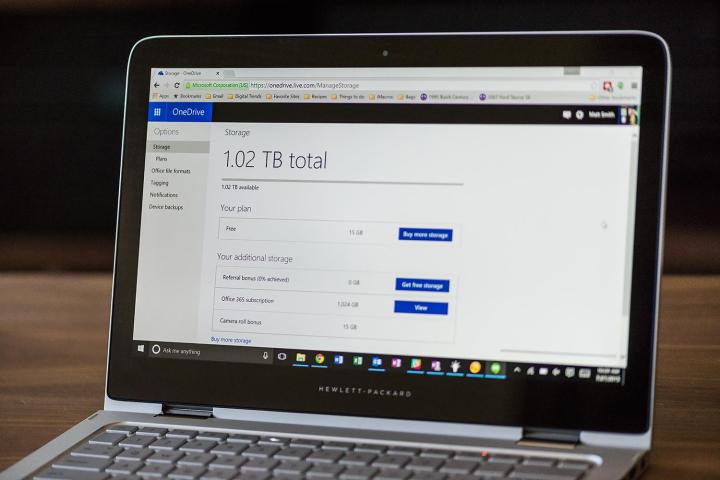
Office 365 Home, Personal, and University subscribers will be downgraded from unlimited storage to 1TB. The changes will go into effect in early 2016, and Microsoft will give unlimited users 12 months to remove excess storage.
Microsoft claims the unlimited storage plan was being abused by a small percentage of customers. Some were using the cloud platform to store all data from their PC, while others were adding over 75TB of movies.
Free users will also be downgraded from 15GB to 5GB of storage. Microsoft is retiring the 15GB camera roll as well, meaning Android and Windows Phone customers will be stripped of 25GB. That makes OneDrive a lot less interesting to free users, who will most likely move to Box or Google Drive.
100GB and 200GB storage plans will be replaced by a 50GB plan for $1.99 per month — the same price as the current 100GB storage plan. Customers currently paying for 100GB or 200GB single subscriptions will be unaffected by the changes, for now.
Microsoft hasn’t added any plans in between 50GB and 1TB, which may annoy customers that want more than 50GB of storage but don’t need more than 200GB. Several fans of OneDrive have complained on Twitter about the changes.
@onedrive Apparently productivity and collaboration = Less storage. I think I'm missing something …
— Kelly Jepsen (@krjepsen) November 3, 2015
@onedrive The reasoning is rubbish. Kill the accounts of users breaking ToS not the rest of us who enjoy and make proper use of our storage
— C:\CDNjustice.exe (@dingl_) November 3, 2015
The announcement places OneDrive firmly in the personal storage market, removing the ability of cloud junkies to use the service. Google Drive would be the optimal service for those users now, since the service offers over 40TB of storage.
Cloud storage is becoming a more competitive market for Microsoft. The company reported an 106 percent increase in commercial cloud storage sales earlier in the year, bringing in $6.3 billion in revenue. It is also seeing growth in its business cloud sector, but is far behind Amazon Web Services in that market.
Editors' Recommendations
- Google Drive vs. Dropbox: which is best in 2024?
- Microsoft might end one of the most annoying GPU wars
- Watch out: Google Drive may have lost months of data
- Everything Microsoft didn’t announce at its 2023 Surface event
- I finally upgraded my Google One storage. Here’s why I might never do it again


